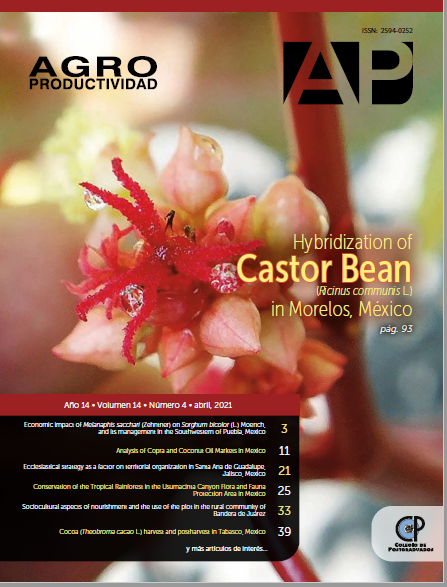Evaluation of Surgical Castration vs Immunocastration in Fattening Pigs
##plugins.themes.bootstrap3.article.main##
Keywords
surgical castration, immunocastration, carcass quality, physicochemical characteristics.
Resumen
Objective: To determine the effect of surgical castration and immunocastration on productive parameters, carcass quality, as well as the physicochemical characteristics of the meat of fattening pigs.
Design/Metodology/Aproach: Ten male pigs of the York/Pietrain/Landrace breed with a body weight of 25±5 kg were used per treatment. They were housed in individual pens and fed diets according to their physiological state. The variables evaluated were analyzed with a student’s t-test for independent samples.
Results: Results do not show differences (p>0.05) in the productive variables, quality of the carcass or physicochemical characteristics.
Study Limitations/Implications: The study did not consider qualitative variables such as flavor and smell of the treatments.
Findings/Conclusions: Immunocastration is an alternative to surgical castration since the quality of the carcass, the productive variables and the physicochemical characteristics of the meat are not affected, and it favors animal welfare.

